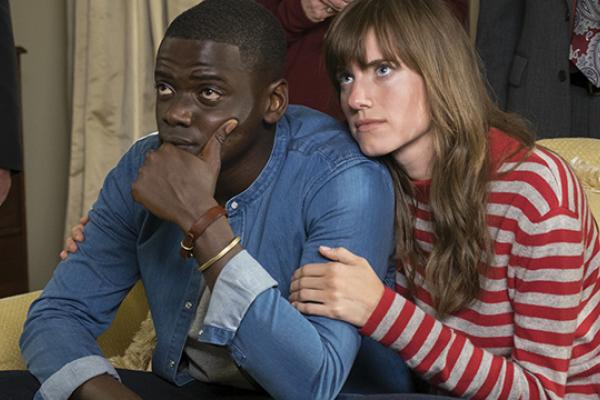WHEN WATCHING a creative imagining of what feels like your own demise, the last thing you want is for an audience to cheer. But for white women watching Get Out, the record-breaking horror flick from comedy writer Jordan Peele, that’s more or less what happened. It was a revealing moment, to say the least.
Get Out follows black photojournalist Chris, whose white girlfriend Rose invites him home for a weekend. To his terror, Chris slowly realizes that her nice, white, liberal family is masking a deep, violent racism. (“I would have voted for Obama for a third term” is a catchphrase played first as proof of the family’s “colorblindness” and later revealed to be a cover for their fetishization of black bodies.) Rose—a seemingly “woke” white woman, who yells at cops for unfairly profiling her black boyfriend—is, without giving too much away, a less-than-ideal ally.
The film was released one month after Trump’s inauguration, and it was easy to cheer for Chris as he took ownership of his fate and sought vengeance on his captors. In the last year, we’d seen unabashed patriarchal white supremacy pulling the levers in our politics and our churches. But then 52 percent of white women—many of them white Christian women—voted for Trump, and the role of white women in building and perpetuating damaging policies, narratives, and theologies was made more clear. Frankly, for me, and other white women who raced to see the film, Get Out felt like a chance to atone. White women have often skated by in the larger battles over identity and justice, inside and outside the church: Let us now give our money to the telling of truth.
To be a white woman in America is to be precariously power-adjacent: Because of our skin, we carry unquestioned privilege in power systems. Because of our gender, that security has a shelf life—we are included only as long as we are able or willing to perform according to those who control the levers.
Read the Full Article

